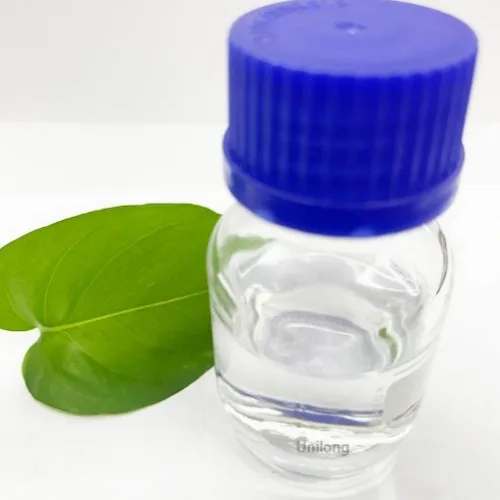Warning: Undefined array key "title" in /home/www/wwwroot/HTML/www.exportstart.com/wp-content/themes/1198/header.php on line 6
Warning: Undefined array key "file" in /home/www/wwwroot/HTML/www.exportstart.com/wp-content/themes/1198/header.php on line 7
Warning: Undefined array key "title" in /home/www/wwwroot/HTML/www.exportstart.com/wp-content/themes/1198/header.php on line 7
Warning: Undefined array key "title" in /home/www/wwwroot/HTML/www.exportstart.com/wp-content/themes/1198/header.php on line 7
- Afrikaans
- Albanian
- Amharic
- Arabic
- Armenian
- Azerbaijani
- Basque
- Belarusian
- Bengali
- Bosnian
- Bulgarian
- Catalan
- Cebuano
- China
- China (Taiwan)
- Corsican
- Croatian
- Czech
- Danish
- Dutch
- English
- Esperanto
- Estonian
- Finnish
- French
- Frisian
- Galician
- Georgian
- German
- Greek
- Gujarati
- Haitian Creole
- hausa
- hawaiian
- Hebrew
- Hindi
- Miao
- Hungarian
- Icelandic
- igbo
- Indonesian
- irish
- Italian
- Japanese
- Javanese
- Kannada
- kazakh
- Khmer
- Rwandese
- Korean
- Kurdish
- Kyrgyz
- Lao
- Latin
- Latvian
- Lithuanian
- Luxembourgish
- Macedonian
- Malgashi
- Malay
- Malayalam
- Maltese
- Maori
- Marathi
- Mongolian
- Myanmar
- Nepali
- Norwegian
- Norwegian
- Occitan
- Pashto
- Persian
- Polish
- Portuguese
- Punjabi
- Romanian
- Russian
- Samoan
- Scottish Gaelic
- Serbian
- Sesotho
- Shona
- Sindhi
- Sinhala
- Slovak
- Slovenian
- Somali
- Spanish
- Sundanese
- Swahili
- Swedish
- Tagalog
- Tajik
- Tamil
- Tatar
- Telugu
- Thai
- Turkish
- Turkmen
- Ukrainian
- Urdu
- Uighur
- Uzbek
- Vietnamese
- Welsh
- Bantu
- Yiddish
- Yoruba
- Zulu
Agosti . 21, 2024 13:48 Back to list
A Comparative Study of Stevia and Aspartame for Health and Sweetness Preferences
A Comparative Analysis of Stevia and Aspartame Evaluating Health Impacts and Consumer Preferences
In recent years, the debate surrounding artificial sweeteners and natural sugar alternatives has intensified, particularly with the rise of health-conscious consumers. Among the plethora of options available, two sweeteners that have garnered significant attention are stevia and aspartame. Both serve as sugar substitutes but differ immensely in their origins, health implications, and consumer acceptance.
Stevia is a natural sweetener derived from the leaves of the Stevia rebaudiana plant. It contains steviol glycosides, which are responsible for its sweet taste, reportedly being 50 to 300 times sweeter than sucrose (table sugar). Crucially, stevia has zero calories, making it a favored choice among individuals aiming to reduce their caloric intake or manage their weight. Furthermore, stevia has been marketed as a healthier alternative, as it is derived from a natural source and does not undergo the same synthetic processing as many artificial sweeteners.
Conversely, aspartame is a low-calorie artificial sweetener created through a chemical reaction between aspartic acid and phenylalanine. Approximately 200 times sweeter than sugar, aspartame is commonly found in numerous diet sodas, sugar-free products, and even some pharmaceutical formulations. Despite its widespread use, aspartment has been a subject of controversy, with studies suggesting potential links to various health issues, including headaches, digestive problems, and concerns about its effects on metabolic processes.
One of the most significant differences between stevia and aspartame lies in consumer perception and acceptance. Stevia often enjoys a reputation as a healthy option due to its natural origins. Consumers increasingly favor products labeled as natural, which boosts stevia's popularity, especially among those looking to avoid synthetic ingredients. In contrast, despite its approval by regulatory bodies like the U.S. Food and Drug Administration (FDA) and the European Food Safety Authority (EFSA), aspartame faces skepticism. Many consumers remain wary of artificial sweeteners, leading to a decline in its popularity.
a comparative analysis of stevia and aspartame in ...

Health experts commonly emphasize the importance of understanding an individual's dietary needs and preferences. While stevia is generally considered safe for all, its potent sweetness can sometimes lead to a bitter aftertaste, which some consumers may find unpalatable. On the other hand, aspartame, while effective for certain applications, must be avoided by individuals with a rare genetic condition called phenylketonuria (PKU), as they cannot effectively metabolize phenylalanine.
Nutritionally, both stevia and aspartame have very low to negligible calorie counts, making them suitable for weight management. However, ongoing research aims to explore the potential long-term effects of these sweeteners on human health. For instance, some studies suggest that natural sweeteners like stevia may have beneficial effects on glucose metabolism and insulin sensitivity, which can be advantageous for individuals with diabetes.
Ultimately, the choice between stevia and aspartame hinges on individual values and health concerns. Consumers who prioritize natural ingredients and are cautious about artificial additives may lean toward stevia, while those looking for widely available, effective sweetness might prefer aspartame. As the sweetener market continues to evolve, it is vital for consumers to stay informed about the implications of their choices and select products that align with their health goals and preferences.
In conclusion, both stevia and aspartame offer unique benefits and challenges. As the demand for healthier alternatives grows, continued research and consumer education will play crucial roles in shaping the future of sweeteners in our diets. Understanding the differences between these two popular options allows consumers to make informed decisions that best suit their lifestyles and health objectives.
Latest news
-
Certifications for Vegetarian and Xanthan Gum Vegetarian
NewsJun.17,2025
-
Sustainability Trends Reshaping the SLES N70 Market
NewsJun.17,2025
-
Propylene Glycol Use in Vaccines: Balancing Function and Perception
NewsJun.17,2025
-
Petroleum Jelly in Skincare: Balancing Benefits and Backlash
NewsJun.17,2025
-
Energy Price Volatility and Ripple Effect on Caprolactam Markets
NewsJun.17,2025
-
Spectroscopic Techniques for Adipic Acid Molecular Weight
NewsJun.17,2025

